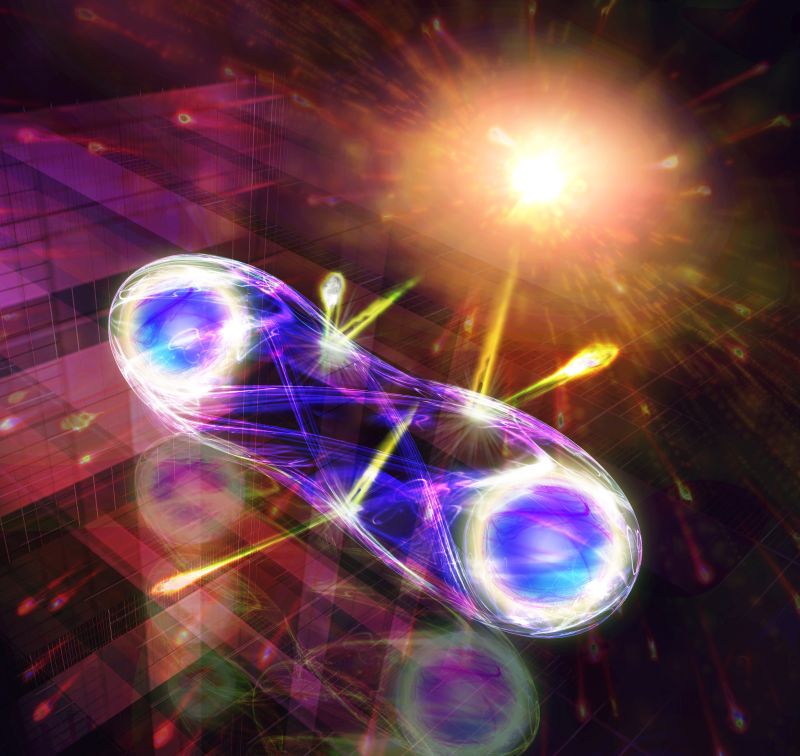Entanglement, also coined „Spooky action at a distance“ by Einstein, is the quantum phenomenon for which certain particles remain "telepathically" instantaneously connected over long distances. This puzzling phenomenon is nowadays a substantial ingredient of the quantum physicist's toolbox and a key resource for applications in secure quantum communication over long distances and quantum cryptography protocols. Unfortunately, entangled particles are easily disturbed by their surroundings: their entanglement is readily diminished by the slightest interaction with the environment.
In a recent study published in the journal Physical Review X, an international team of physicists from Austria, Scotland, Canada, Finland, and Germany demonstrate how quantum entanglement can be strengthened to overcome particle loss or very high levels of noise, which are inevitable in real-life applications outside the laboratory. This strengthening is accomplished by departing from commonly used two-level quantum bits, or qubits. Qubits are bi-dimensional systems, the quantum analogue to the classical bit, with values “0" or "1". In this study, the researchers instead employed entanglement of systems with more than two levels. By entangling particles of light through their spatial and temporal properties, scientists now observe the survival of quantum entanglement under harsh environmental conditions for the first time.
When it comes to distributing particles of light outside of a protected laboratory, the environmental conditions are identical to the tested ones. Therefore, the experiment is not only a proof-of-principle implementation but is ready to be directly adopted for long-distance quantum communication under real-world conditions. This new method could hence prove helpful for distributing entanglement in a future quantum Internet.
Publication:
"Overcoming noise in entanglement distribution.", Sebastian Ecker, Frédéric Bouchard, Lukas Bulla, Florian Brandt, Oskar Kohout, Fabian Steinlechner, Robert Fickler et al., Physical Review X, 2019
DOI: https://doi.org/10.1103/PhysRevX.9.041042


